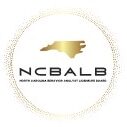News and Updates
NCBALB Meetings 2024:
Update October 3, 2023: QABA added to statute as a certifying entity that could qualify someone for a license.
Update July 13, 2023: License applications now available.
Update April 21, 2023: The Board is waiting on approval from the FBI to be able to process background checks pursuant to N.C.G.S. § 90-744. We communicate with the SBI several times a week, who is our point of contact for the FBI, to see if any confirmations have been received. Once the Board has this approval in place then the application process can be opened.
Update January 31, 2023: The North Carolina Behavior Analyst Licensure Board’s rules have been approved and will be published on February 1, 2023. Now that the rules have been approved the Board is closer to being able to accept applications. Currently, the Board is waiting for approval for background check processing through SBI and FBI. The request was submitted in October of 2022 and once this authorization is received the Board can then begin accepting applications.
Provision of Services via Electronic Means
In response to inquiries from licensees and other interested parties, the Board has concluded it has no separate view per se regarding the provision of services via electronic means.
At all relevant times, regardless of the delivery mode of services, licensees must abide by N.C.G.S. Chapter 90, Article 43; 21 NCAC 05; the Ethics Code for Behavior Analysts; and all applicable laws, rules, and regulations. Please see “Rules and Statues.” The most up-to-date version of the Ethics Code for Behavior Analysts can be found on the certifying entities’ website at: https://www.bacb.com/ethics-information/ethics-codes/.
The Board considers that the practice of behavior analysis occurs both where the person who is providing services is located and where the individual who is receiving the services is located. An individual must be licensed by the Board or exempt pursuant to N.C.G.S. § 90-745 in both instances. It is recommended that the person providing services contact the licensing board in the state in which the client resides to determine if such practice is permitted in that jurisdiction.
The specific mode of service delivery should be conducted in a manner that is beneficial to the client. Licensees must carefully consider and resolve challenges inherent in the specific mode of delivering services. Such challenges may include, but are not limited to, informed consent, competence, providing effective treatment, timeliness, confidentiality/security of privacy, compliance with supervisory and reporting requirements, and effective communication about services. Licensees must act in the best interest of clients, taking appropriate steps to support clients’ rights, maximize benefits, and do no harm.
The best interests of the client should be the ultimate determinate in the service delivery format.
